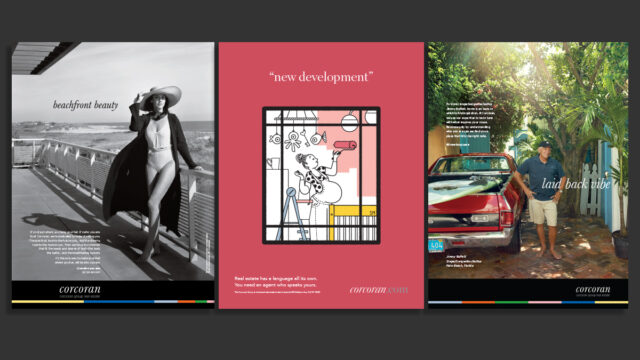Get Your Brand In on the Ground Floor of Real Estate Entertainment
Take your media strategy to the next level at Mediaweek. Cultivate new media partnerships and gain tools to standout across platforms from experts at Youtube, Peloton, LTK and more. View agenda.
From Million Dollar Listing to Zillow Gone Wild, I know firsthand about the rise of real estate content. And its popularity continues to increase thanks to the demand from fans who can’t get enough, whether it’s captivating content around home renovations or programming that takes an inside look at the high-stakes transactions real estate agents navigate.
But why is real estate content in particular on the rise, and what does this mean for marketers?
It’s no secret that reality TV is popular among consumers and dominates pop culture. It gives people the ability to connect with audiences on a personal level, provides escapism, and now—thanks to social and streaming platforms—entertains.
The content boomed during the pandemic due to a combination of historically low mortgage rates and increased remote work flexibility. As people spent more time at home, many found themselves wanting a more spacious and comfortable living environment but lacked the resources they needed to understand how the buying and selling process works. Real estate content helped fill this void in a way that not only entertained consumers but also educated them.
Now, realtors are reality TV and social stars, becoming influencers in their own way. Their authenticity, relatability and perceived accessibility makes them trusted figures in the eyes of their audience.
When a reality TV star endorses a product or service, it carries a sense of personal recommendation that resonates deeply with their followers. This influence stems from the connection viewers feel with these stars, who share their lives, challenges and successes in a way that scripted television rarely does. As a result, consumers are more likely to engage with brands and make purchasing decisions based on the endorsements of reality TV stars, believing in their genuine affinity for the products they promote.
So how can a marketer work with someone like me or other influencers in the space, whether realtors, mortgage brokers or any other DIY social star? To maximize the benefits of collaborating with this particular influencer, brands should consider the following best practices.
Product placement
Integrate products seamlessly into the show’s content. Whether it’s furniture, home decor or financial services, ensure that each product enhances the viewer’s experience and aligns with the show’s theme.
Real estate developers saw an increase in sales and property value after their luxury homes were featured on Million Dollar Listing, demonstrating the effectiveness of strategic product placement. Additionally, Wayfair experienced a surge in online traffic and sales after its furniture and decor were prominently displayed in home makeovers on Property Brothers, illustrating how well-integrated product placements can drive consumer interest and engagement.
Influencer marketing
Partner with real estate influencers for sponsored posts, unboxing videos and reviews on social media. Authentic endorsements from trusted personalities can greatly increase consumer interest and engagement.
I’ve worked with companies I love (and actually use) to develop content or series that further drive brand awareness. For instance, I’ve worked with Luxury Presence, using their online tools to recreate my website, along with my colleague and co-star Tracy Tutor’s website. We developed a video series that chronicled our decision to move to Luxury Presence and what it took to build a luxury real estate website that actually converts leads.
It was both entertaining and educational, and the first of our four videos drove 182,000 views across platforms. The key is finding the right partner that aligns with your brand.
Related video
Co-branded content
Create exclusive content or special episodes featuring your brand. This can range from a behind-the-scenes look at the renovation process to a deep dive into market trends, all while subtly highlighting your products or offerings.
In support of Apple TV’s Silo, I, along with a few other creators, produced parody content showcasing and promoting underground bunkers. I was surprised to see all the engagement. We came clean and told our followers the next day that this content was a joke (I do not sell bunkers), but if they wanted more of this type of content, they should tune into Silo. Ultimately, the campaign generated millions of views and helped drive tune-in for the show.
Event sponsorship
Sponsor open houses, viewing parties or other real estate events featured in the show. This strategy not only increases brand visibility but also associates your brand with the excitement and prestige of these events.
For example, luxury Champagne brand Moët & Chandon sponsored a viewing party on Million Dollar Listing, complete with branded decor and exclusive tastings. This partnership effectively positioned Moët & Chandon within a luxurious and celebratory context, leading to increased brand recognition and sales among the show’s upscale audience.
Real estate content is opening new doors for brands eager to tap into this enthusiastic audience. By integrating products and services into real estate programming, brands can seamlessly reach consumers who are deeply invested in the real estate market and lifestyle.
The intersection of reality TV and real estate offers a dynamic platform for innovative and impactful brand engagement.
https://www.adweek.com/convergent-tv/get-your-brand-in-on-the-ground-floor-of-real-estate-entertainment/

